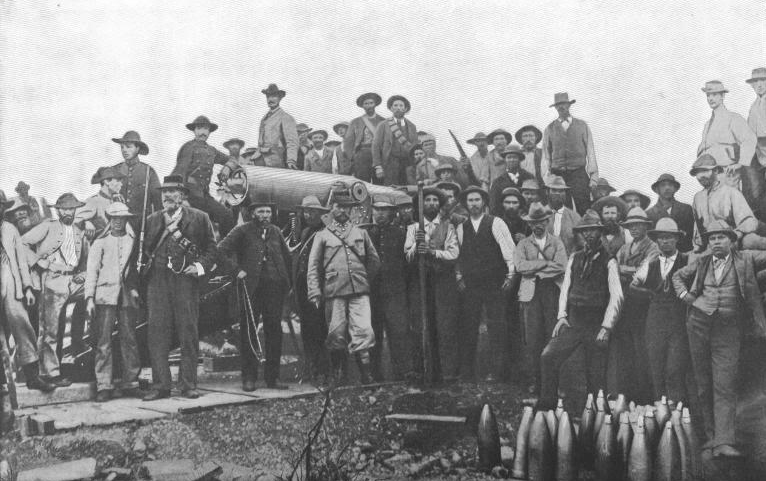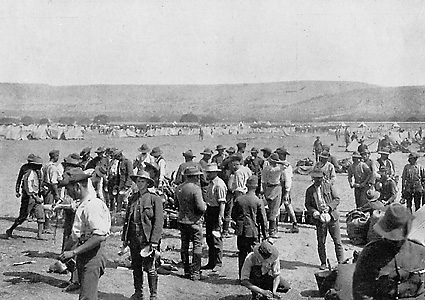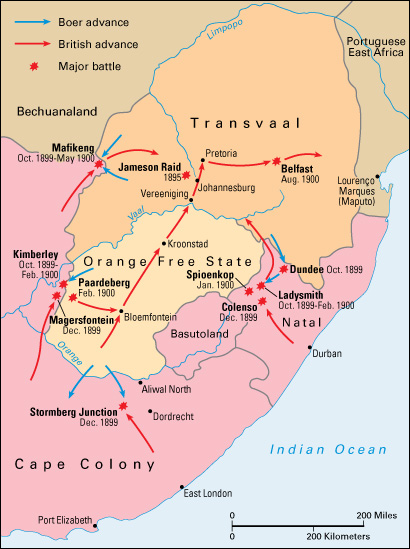Anglo-Boer << ANG gloh bawr >> Wars were fought in what is now South Africa from 1880 to 1881 and from 1899 to 1902. They were struggles between the British and the Boers (now called Afrikaners) of the northern South African regions of the Orange Free State and the South African Republic (also called Transvaal). Most of the Boers were farmers of Dutch ancestry. The main cause of the wars was the United Kingdom’s desire for supremacy in South Africa. In the war of 1880-1881, the Boers fought for and regained the independence of the South African Republic, which the British had annexed in 1877. That struggle is often called the Anglo-Transvaal War. The Anglo-Boer War of 1899-1902 was a longer and larger conflict. It is also called simply the Anglo-Boer War and sometimes the Boer War or the South African War.

Many Uitlanders (foreigners), the majority of whom were British, rushed into the South African Republic after the discovery of the Witwatersrand gold fields there in 1886. The government of the republic denied them full political rights and power. In 1895, some Uitlanders plotted to overthrow the government. A British colonial administrator named Leander Jameson led an unsuccessful Uitlander raid into the republic from the British-controlled Cape Colony. The Orange Free State joined the South African Republic in declaring war on the United Kingdom in October 1899. Many British in South Africa opposed the United Kingdom’s South African policy before and during the war.

The Boers won victories in the early stages of the war. In January 1900, Lord Roberts and Lord Kitchener took command of the British troops as more of them arrived in the area. The British captured the capitals of the two republics in April and June of that year, and a Boer army surrendered to Roberts in September. But the remaining Boer forces took to the countryside, where they carried on guerrilla warfare.

The war ended when the Treaty of Vereeniging was signed on May 31, 1902. The Boers agreed to stop fighting and swear allegiance to King Edward VII. The British allowed all prisoners to go home, and agreed not to punish anyone for his or her part in the war. As a result of the war, the two defeated republics became British colonies.
